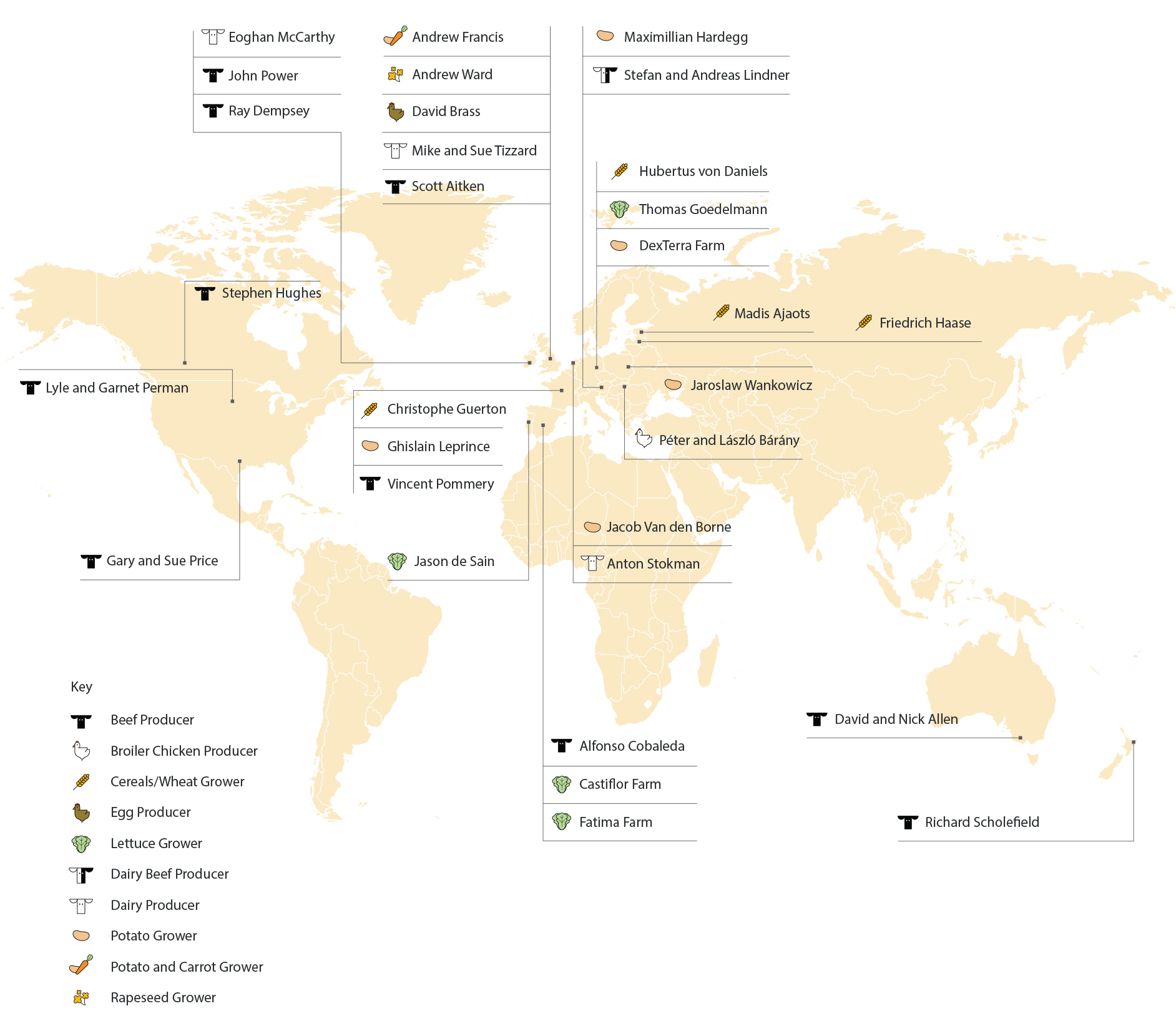The McDonald’s Flagship Farmers Program provides a platform for farmers, ranchers, producers and growers, recognized within the McDonald’s supply chain, to share their knowledge and experiences in key areas of agricultural sustainability with other farmers around the world. By collaborating with other farmers on more sustainable practices, individual producers can be part of driving positive change across the global agriculture industry while protecting the viability of their farms.
The McDonald’s Flagship Farmers Program has engaged farmers and ranchers in Europe for several years. It is now focused on expanding globally, with an emphasis in 2018 on key beef producing countries: the U.S., Canada, New Zealand, Australia, Brazil, France and Poland. Look for Flagship Farmer beef producers from these seven countries to be added to the program throughout 2018.
“The ultimate goal of Flagship Farmers is for us to play our part in helping improve the sustainability of agricultural production. We believe that by working together, everybody benefits – our business, our suppliers and our customers.”
An introduction to the program
Millions of farms globally supply McDonald’s with the food it needs to serve more than 69 million customers every day. Wheat, potatoes, lettuce, coffee, tomatoes, milk, eggs, beef, chicken and pork are all produced on individual farms then sent to McDonald’s suppliers for sale and distribution to nearly 37,000 restaurants in 119 countries around the world.
But today, the world is facing population growth and a rise in consumption, compounded by the impacts of climate change, such as shifting weather patterns and rising temperatures. This is affecting how and where ingredients can be farmed, stretching natural resources to the limit. McDonald’s is committed to empower, equip and connect farmers to help them become more resilient to these global challenges, so that we can ensure a sustainable supply of raw materials.
Supporting continuous improvement around sustainability
Flagship Farmers help other farmers share experiences and spread innovative new practices around the Three ‘E’s of Responsibility: environmental safeguarding, ethical practices and economic viability in the long term.
Environmental safeguarding
Working to address climate change and reduce greenhouse gas emissions. Protecting biodiversity and natural resources while cutting waste and using technology responsibly.
McDonald’s priority impact areas
- Forest conservation
- Addressing climate change
- Waste
- Water
Other key focus areas
- Soil
- Biodiversity and ecosystems
Ethical practices
Treating people fairly, respecting labor laws, and providing best-in-class wellness and care for animals. Protecting rural landscapes while running an ethical business that maintains positive relationships.
McDonald’s priority impact areas
- Human rights and well-being
- Animal health and welfare
Other key focus areas
- Ethical business relationships
- Communities
Economic viability
Engaging in practices that secure consumer viability and provide long-term economic stability to the farm.
McDonald’s priority impact areas
- Promoting business viability
Other key focus areas
- Production quality
Every farm is unique, but the Flagship Farmers’ case studies are a great place to begin exploring where you can make a difference and how you can adapt and adopt sustainable practices for your operation. Listed here are the areas which McDonald’s believe will help define, support and drive good practice at the farm level to meet the challenges of the future.
“Flagship Farmers is vital because it shares best practice. It’s not McDonald’s saying it, it’s the farmers themselves saying ‘This is what we’re doing and this is how we’re doing it.’”


